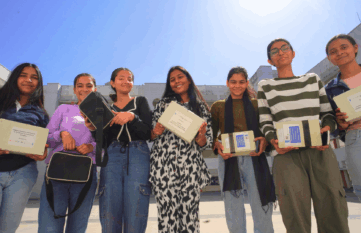Feeding the future: Smarter data improves India’s nutrition services

India is increasingly leveraging data and digital technology to drive smarter policymaking in the nutrition sector. A pilot project in Rajasthan shows how the right evidence, paired with strengthened institutional capacity, can make nutrition services more responsive to the needs of pregnant women, young children, and mothers.
Nutrition remains a cornerstone of India’s key development priorities. According to the National Family Health Survey (NFHS-5, 2019-2020), one in three children under the age of five suffer from stunting or underweight, and more than half of all women and girls aged 15 to 49 are anaemic. Recognising the particular needs of pregnant women and children under six, the government has invested extensively in programmes tackling malnutrition, immunisation, health check-ups, and nutrition education through frontline services and a strengthened ecosystem.
A flagship effort is the programme Poshan Abhiyaan (translates to: Nutrition Mission), launched in March 2021. It adopts a holistic approach that combines supplementary nutrition, early childhood care and community outreach, led by the Ministry of Women and Child Development (MoWCD) through the Integrated Child Development Services (ICDS) scheme—one of the largest public nutrition programmes globally.
To strengthen service delivery, the digital tool ‘Poshan Tracker’ monitors various indicators, such as child growth, nutritional support, and health check-ups. Health workers and state officials enter information that is then compiled and analysed for policymakers. More than a data collection tool, it thus ensures that information is timely, reliable, and actively used for programme improvement.

From data collection to data-driven decisions
Building on these foundations, the Department of Women and Child Development in Rajasthan, together with Deutsche Gesellschaft für Internationale Zusammenarbeit (GIZ) GmbH and Jhpiego launched a pilot in October 2024 to explore a new approach: using digital data as a tool for systemic decision-making and institutional strengthening.
At its core is the development of role-based analytical dashboards that turn complex datasets into user-friendly visualisations tailored to the specific needs of government users, from supervisors of rural childcare centres to state-level programme managers. These dashboards allow for performance comparisons, predictive trend analyses, as well as more effective supervision and monitoring. Additionally, links between nutrition data and other health systems are being explored to create a more holistic picture of maternal and child well-being.
Key features of the dashboards include:
- Identification of the five top and bottom performing areas using KPIs such as: health status, provided hot cooked meals or take-home ratio for 21+ days, household visits, community events, or pre-school participation for at least 16 days in a month
- In-depth sub-geographic analysis within KPIs
- Interdepartmental convergence between Health and ICDS for integrated service delivery
- Anganwadi Centre (childcare centres in rural areas—AWC) prioritisation for targeted supervision
- Multi-indicator geographic and trend analysis of specific key indicators through the ‘Poshan Aankalan’ tool
- Self-service analytics via the interactive data assistant ‘Poshan Sakhi’, providing instant, easy-to-understand responses—especially useful for frontline users, such as Lady Supervisors or Anganwadi workers
- Supportive supervision and time-series graphs to guide future planning
To foster a stronger culture of data use, over 60 officials, including ICDS Deputy Directors, participated in intensive capacity-building sessions. The training, facilitated in collaboration with the Open Data Institute, focused on the data lifecycle, storytelling with data, and strategic planning with analytics.

From pilot to policy
The programme goes beyond digital tools, it invests in people and processes that enable better decisions. The aim is clear: to create an ecosystem where data is used not just for compliance, but for learning, planning, and accountability. This work is supported by the GIZ under the broader framework of SENU – Securing Nutrition, Enhancing Resilience, in collaboration with the Data2Policy initiative, providing technical expertise.
Following the completion of the pilot phase in July 2025, the project is now entering a new phase of active use by state officials. Its success could mark a turning point from data for compliance to data for action—ensuring that every child, every mother, and every adolescent girl receives the timely and effective nutrition support they deserve. The insights and learnings will be shared with the MoWCD for possible national scaling and cross-state replication.
This is how data strengthens governance: by building capacity, creating shared understanding, and improving the lives of those who need it most.



